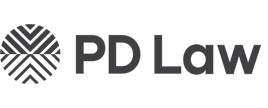We enhance healthcare practice branding with services in market research, strategy, development, design, and implementation.
Our expertise in SEO, web design, print collateral, and graphic design, tailored specifically for the healthcare sector, seamlessly connects you with potential clients while navigating industry regulations with finesse. We focus on crafting a comprehensive brand style that speaks to your audience, ensuring every aspect of our work is captivating and complies with healthcare standards.
At the core of our approach is the aim to create genuine relationships with your clients through our user-friendly services. We excel in patient engagement, effective communication, and establishing a unique presence for your practice in the healthcare market. With deep respect for the healthcare field, we meticulously develop and implement a multifaceted brand strategy, covering web, print, and visual design, to foster growth and build trust in your practice.
In the rapidly evolving landscape of healthcare, technology is playing an increasingly pivotal role in transforming the way healthcare practices operate. Among the myriad of technological advancements, chatbots and artificial intelligence (AI) have emerged as powerful tools, poised to alleviate the burden on medical staff and enhance patient care.
As the realm of healthcare demands efficiency and timely interventions, the integration of these cutting-edge technologies is revolutionizing various aspects of healthcare practice, from appointment scheduling to patient education and remote monitoring.
Appointment Scheduling: A Seamless Experience
Chatbots and AI technology in healthcare practices have many significant advantages, one being streamlining appointment scheduling processes. Traditionally, patients would have to navigate complex phone systems or visit clinics in person just to schedule appointments – often leading to long wait times and frustration for both patient and provider alike. With AI-enhanced chatbots now offering user-friendly booking, rescheduling, or cancellation capabilities on websites or mobile apps.
AI-powered chatbots are created to understand natural language queries and respond intelligently, seamlessly guiding patients through the scheduling process with ease. Leveraging machine learning algorithms, these chatbots can quickly analyze patient preferences, provider availability, historical data and scheduling conflicts to suggest suitable appointment times which minimize scheduling conflicts and wait times while improving patient experiences and relieving healthcare staff of administrative duties so they can focus on more pressing tasks.
Chatbots offer another solution to appointment management by sending automatic reminders directly to patients, helping reduce missed appointments and making more efficient use of healthcare resources. This proactive approach to appointment scheduling has proven highly successful at increasing patient adherence while leading to improved health outcomes and cost savings for both healthcare practices and their patients.
Patient Education and Support: Empowering Proactive Healthcare
Knowledge is power in healthcare, and providing patients with accurate and accessible information is of the utmost importance. Chatbots powered by artificial intelligence (AI) and natural language processing (NLP) technologies can play an integral role in disseminating vital health data while answering frequently asked questions regarding common illnesses, medications, and preventive measures.
These chatbots utilise vast databases of healthcare knowledge and user interaction data to deliver customized advice and recommendations tailored specifically to individual patient needs. Users can engage in conversational interactions by asking about symptoms, treatment options or health concerns while receiving comprehensive but user-friendly responses in real-time.
AI-driven chatbots can also adjust their language and communication style based on each patient’s level of comprehension, providing accurate and accessible information that empowers patients with knowledge about healthcare decisions, reduces unnecessary visits to clinics and fosters proactive healthcare management.
Remote Monitoring: Revolutionizing Patient Care
In the pursuit of providing comprehensive and continuous care, AI-powered chatbots can play a pivotal role in remote monitoring of patients’ health.
By integrating with wearable devices and electronic health records (EHRs), these chatbots can collect and analyze vast amounts of patient data, including vital signs, activity levels, and medication adherence.
Through advanced machine learning algorithms, chatbots can detect patterns, identify potential health risks, and provide timely alerts or recommendations to healthcare professionals. This enables proactive intervention and personalized care plans, potentially preventing minor issues from escalating into more serious conditions.
For instance, if a chatbot detects abnormal heart rate patterns or elevated blood pressure readings from a patient’s wearable device, it can immediately notify the healthcare provider, who can then take appropriate action, such as scheduling a follow-up appointment or adjusting medication dosages. This real-time monitoring and early intervention can significantly improve patient outcomes and reduce the likelihood of hospital readmissions, ultimately lowering healthcare costs and enhancing the overall quality of care.
Additionally, chatbots can play a crucial role in medication adherence monitoring, sending reminders and tracking whether patients are taking their prescribed medications as directed. This not only helps to ensure optimal treatment outcomes but also provides valuable data to healthcare providers, enabling them to identify potential barriers to adherence and address them proactively.
Challenges and Considerations
While the integration of chatbots and AI in healthcare practices holds immense potential, it is important to address several challenges and considerations. Data privacy and security remain paramount concerns, as chatbots and AI systems will be handling sensitive patient information. Robust data protection measures, encryption protocols, and adherence to regulatory frameworks such as the Health Insurance Portability and Accountability Act (HIPAA) are crucial to ensure the ethical and secure deployment of these technologies.
Furthermore, the implementation of chatbots and AI should be accompanied by comprehensive training and education for healthcare professionals and patients alike. Healthcare staff must be trained to effectively collaborate with these technologies and interpret the insights and recommendations provided by AI systems. Similarly, patients should be educated on the capabilities and limitations of chatbots and AI, fostering trust and appropriate expectations.
It is also essential to acknowledge that while chatbots and AI can significantly enhance various aspects of healthcare practice, they should not be viewed as replacements for human healthcare professionals. The empathy, critical thinking, and deep subject matter expertise provided by doctors, nurses, and other medical staff remain invaluable and irreplaceable. Instead, chatbots and AI should be embraced as powerful tools to augment and support human healthcare professionals, enabling them to focus on more complex tasks and personalized patient interactions.
Conclusion
The integration of chatbots and AI in healthcare practices is poised to revolutionize the way healthcare services are delivered. From streamlining appointment scheduling and providing accessible patient education to enabling remote monitoring and timely interventions, these technologies offer a myriad of benefits. By alleviating administrative burdens, empowering patients with knowledge, and facilitating continuous care, chatbots and AI have the potential to enhance operational efficiency, improve patient outcomes, and drive positive transformations in the healthcare industry.
As technology continues to evolve and the adoption of chatbots and AI becomes more widespread, it is imperative for healthcare practices to stay at the forefront of these advancements. By embracing these innovative technologies while adhering to ethical guidelines, data privacy regulations, and fostering effective collaborations between humans and machines, the healthcare sector can harness the full potential of chatbots and AI to deliver exceptional patient care and drive lasting improvements in population health.

























